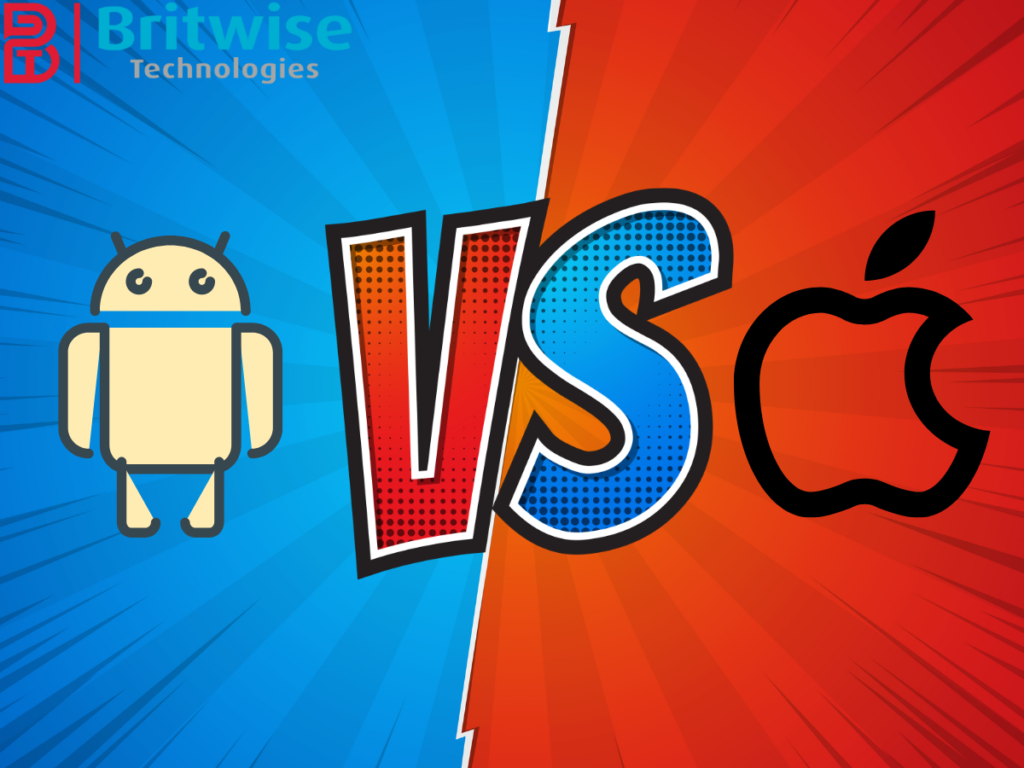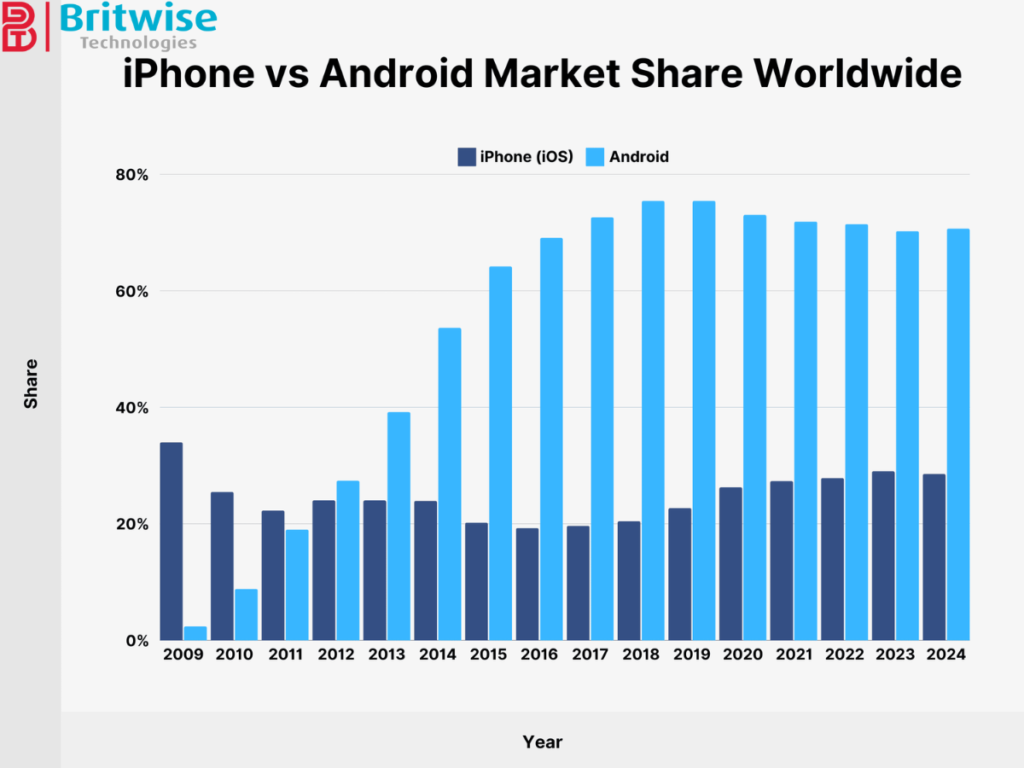Android vs iOS: Introduction Of Operating System

Android vs iOS, which are the most popular dominant operating systems, are skyrocketing in current market trends today. So, here we will see an in-depth comparative analysis between Android and iOS. Though they have similar features, what sets them apart is their UI, ecosystem, cost, and market trends.
Let’s dive further to learn more about operating systems. How has it benefited users? About features, customization, market trends, and how it is ruling all over the world.
Android was first launched by Google, and it became very popular soon. Users had the flexibility of customizing apps, analyzing the data required for applications, and making them easy to navigate. Whereas an iPhone was launched by Apple, it went crazy because of its high quality and security purposes.
Alright, so let’s dive in!
User Interface: Customization vs. Consistency
So when it comes to user interfaces, we can say Android is better than iOS. It is open source, and users can customize apps on their own. Whereas in iOS, it has limited options. iOS is also providing options, but not as compared to Android. IOS is a user-friendly platform with visually appealing app icons. Ultimately, iOS is a need. Android has a customizable and adaptive user interface. By altering the launchers, app icons, and home screen layout, users can personalize the look and feel of their smartphones. They can even swap out the launchers with new ones to completely redesign the interface. Users may create an experience that is truly personalized to their interests and style because to the abundance of customizing choices available. Nonetheless, the sheer number of options may be overwhelming for certain individuals.
In contrast, iOS seeks to offer a unified and intuitive user experience across all Apple devices.
Apple created a user interface that is both aesthetically pleasing and very functional.
Ecosystem: Open Source vs. Secure Environment
Talking about ecosystems, iOS tops here for its strict security control, whereas Android has no strict security, which leads to malware and potential risks. The Apple ecosystem, combined with Apple products, provides a better UI experience. Android provides the Google ecosystem, including Gmail, Google Drive, and other services. While the app review procedure is less stringent than that of Apple’s App Store, Android users have access to a large number of apps, many of which are free or have free versions.
The app stores for iOS and Android operate pretty differently.
Similar to an open market, Android’s app store functions. You can get up and sell your programme as many distinct developers can. By doing this, you can find a ton of applications—some of which are really great. But it isn’t as closely managed. Some developers may try to offer you malicious software . Google tries its utmost to verify items, yet some get through. Apple’s programme store functions more like a rigid quality control procedure that every programme must go through. In removing anything untrustworthy. The downside is that you don’t get quite as many crazy, unique options. But what’s there is typically high quality and safely packaged up.
Security: Strengths and Vulnerabilities
Apple has continuously topped the list when it comes to security, and privacy is a key point for iOS. They followed strict rules and continued their approach to ensure tight security for users. Android users, while downloading third-party apps, should be careful about privacy and security policies; it might lead to risks, and due to its significant changes and improvements, it can turn into security threats.
Google works hard to identify malicious applications and other threats to your phone. Important security upgrades may take some time to reach all Android phones due to the variety of manufacturers and models. That leaves some people with open doors that bad guys could possibly sneak through. When an iOS security update comes out, it hits every iPhone and iPad at the same time. This lets Apple move fast to close any new security holes that pop up before too many people get affected.
However, Apple’s strict control means that iOS cannot be customized or modified as much as Android. There is a balance. No phone is completely unhackable. Overall, most experts believe iOS is a bit more secure because of Apple’s better quality standards and ability to quickly deliver updates to repair bugs. Android has gotten way better at security too, though. At the end of the day, keeping your phone updated, only installing apps from legit sources, and using some common sense go a long way toward security on both systems.
Market Dominance: Global Reach and Adoption

Android is open source and globally big according to innovation and potential growth. It’s a widely used mobile operating system, and its cost is affordable. Because of this, its market dominance is undeniable. The ability to continuously adapt and change is an advantage for Android. And the developers upgrade and make appealing customizations for users. With a significant growth in market share, Android currently commands 71.4% of the global market. It sets itself apart from the competitors due to the recently introduced 5G connectivity.
The smooth integration and enhanced user experience of iOS have made it a premium mobile operating system, but what really sets Apple apart in the eyes of its customers is its dedication to provide the same software on all of its devices.
Market statistics show that iOS has risen significantly, accounting for 92% of global revenue. The connection with Apple devices such as MacBook, iPads, and AirPods, as well as breakthrough hardware such as Face ID and LiDAR scanners, creates a superior mobile experience that combines sophisticated technology with Apple’s design.
Conclusion: Who wins the challenge?
Now let’s end the debate of Android vs iOS. Whichever of Android and iOS is best for your smartphone will depend on your personal tastes. For those who value having complete control over their phone, Android is unquestionably the best option.
It can occasionally be awkward and challenging to have that much independence, though. Your responsibility lies more in maintaining the status .On the other hand, iOS operates more like an upscale, opulent device with superb capabilities. Apple ensures flawless software and phone compatibility with effortless integration across all of their other devices. Whichever strategy is “better” in the end will depend on what you value more. Android allowed for unprecedented customization, while iOS was impeccably simple.

